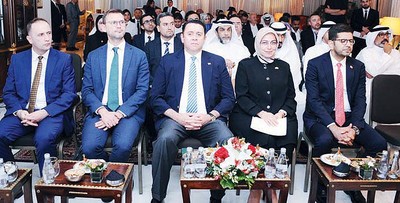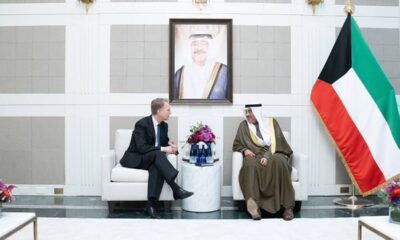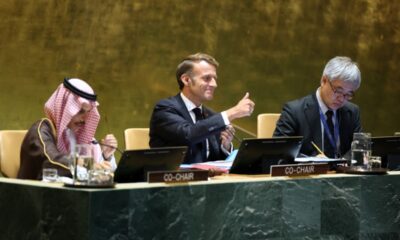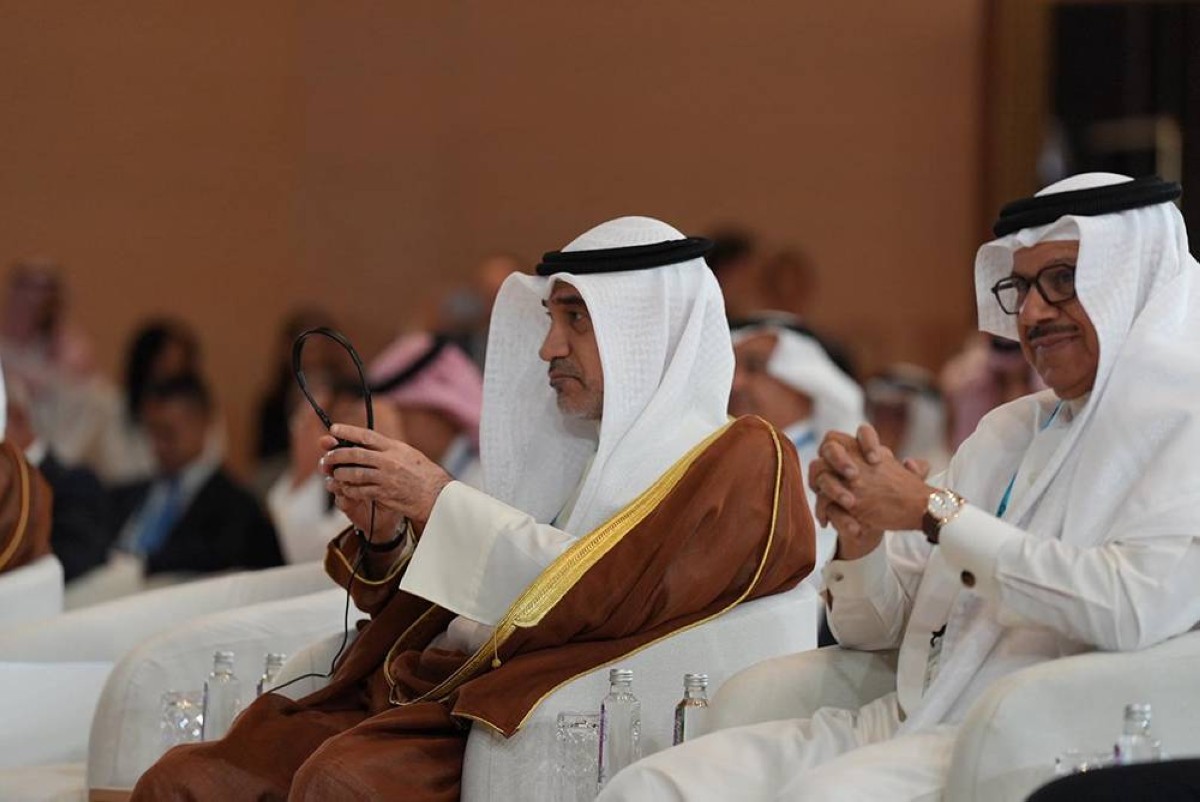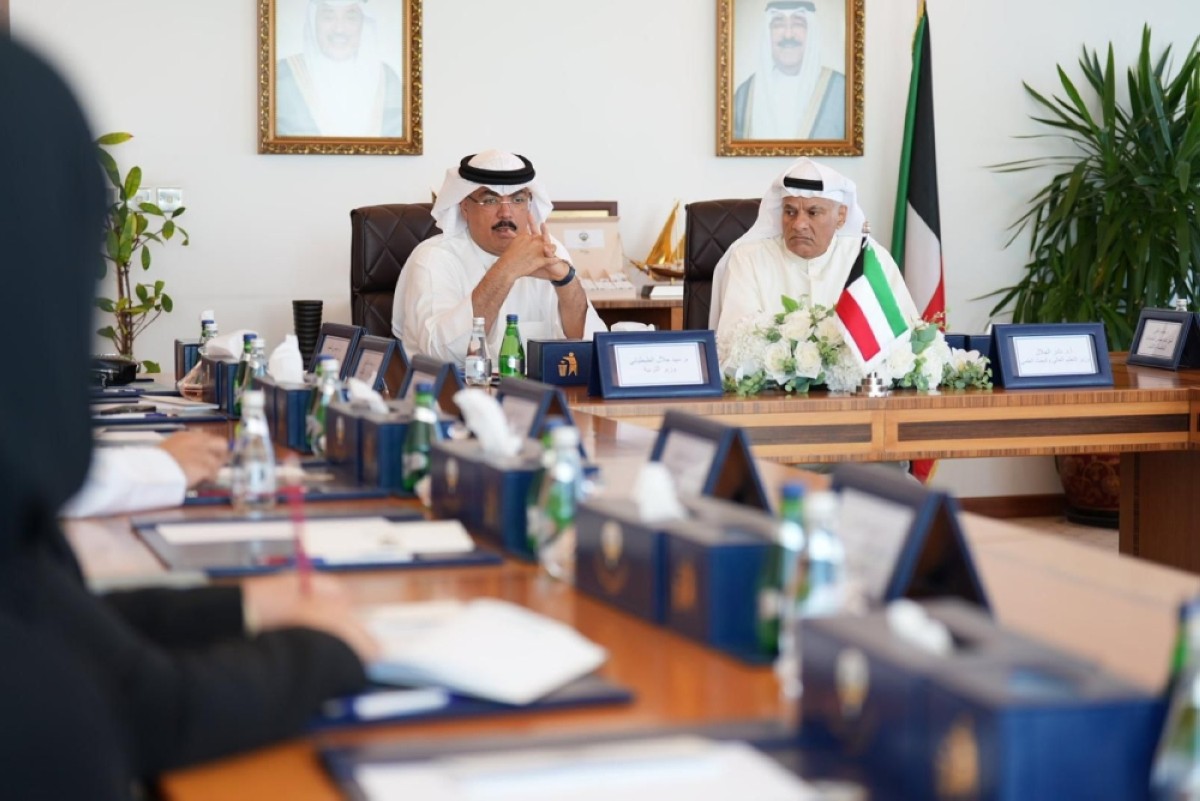RIYADH: His Highness the Amir Sheikh Meshal Al-Ahmad Al-Jaber Al-Sabah participated in the Gulf-US Summit held on Wednesday in the Saudi capital, Riyadh, alongside leaders of the Gulf Cooperation Council (GCC), US President Donald Trump and GCC Secretary General Jasem Al-Budaiwi. The high-level summit addressed regional and international developments, underscoring joint efforts to bolster security and stability, advance sustainable development and further reinforce the strategic partnership between the GCC and the United States.
In his address to the summit, His Highness the Amir expressed his deep satisfaction with the convening of the gathering, extending his appreciation to the Custodian of the Two Holy Mosques King Salman bin Abdulaziz Al-Saud and Crown Prince and Prime Minister Mohammad Bin Salman Al-Saud for the warm hospitality and exceptional organization of the event.
His Highness emphasized Kuwait’s firm commitment to strengthening cooperation with the United States, particularly in the economic sphere. He expressed hope that the summit would serve as a pivotal platform to address pressing regional issues and proposed the establishment of a Gulf-American forum for cultural and educational dialogue. Such an initiative, he said, would support joint research, empower youth and promote the values of tolerance, openness and mutual understanding.
His Highness also commended the GCC states’ support for Kuwait’s chairmanship of the Council, noting their unified stance in enhancing Gulf solidarity and deepening the strategic alliance with the United States. “I extend sincere thanks to President Donald Trump for his continued commitment to engaging with GCC leaders in support of our shared vision for peace, security and prosperity,” he said. Recalling the US-led coalition’s historic role in liberating Kuwait in 1990, His Highness affirmed that the enduring partnership between the GCC and the US has evolved into a comprehensive alliance spanning security, economic and development fields.
Highlighting investment as a cornerstone of the GCC-US relationship, His Highness called for joint initiatives in smart infrastructure, innovation, entrepreneurship and support for small and medium enterprises. He voiced optimism for expanding Kuwait’s investment cooperation with the United States as a key strategic partner. Against the backdrop of ongoing international challenges, His Highness reaffirmed the GCC’s united position in safeguarding the region’s security and sovereignty, stressing the importance of collective efforts to meet the aspirations of the peoples of the region.
On the humanitarian front, His Highness underscored the need for coordinated Gulf-US development aid to ensure sustainable relief for conflict-stricken communities. He reiterated Kuwait’s unwavering commitment to humanitarian action and international cooperation. Turning to regional issues, His Highness voiced hope that the summit would mark a new chapter in addressing Middle East challenges, including the Palestinian cause. He reiterated Kuwait’s support for a just and comprehensive solution based on international legitimacy and the Arab Peace Initiative, aiming to establish an independent Palestinian state with East Jerusalem as its capital. On Syria, His Highness called for intensified international efforts to uphold the country’s unity, sovereignty, and stability. He welcomed the recent decision by President Trump to lift sanctions on Syria as a positive step. He also commended Oman’s mediation in securing a ceasefire in Yemen, noting its significance for ensuring maritime security.
Addressing broader global conflicts, His Highness the Amir praised US diplomatic efforts aimed at resolving the Russia-Ukraine war and reducing tensions between India and Pakistan. He reaffirmed the GCC’s belief in shared responsibility for regional stability, describing the US-Gulf partnership as a vital pillar of that objective. “We look forward to this summit being a step toward building a more stable, balanced, and integrated regional order based on international law, mutual respect, and shared interests,” His Highness said in conclusion, expressing gratitude to Saudi Arabia and President Trump for their key roles in the summit’s success.
Following the summit, His Highness the Amir sent a cable of thanks to King Salman, commending the Kingdom’s pivotal regional and international role and the deep-rooted relations between the two nations. He also sent a similar message to Crown Prince Mohammad Bin Salman, lauding Saudi Arabia’s efforts in hosting the event and expressing hope that the summit’s outcomes would advance mutual cooperation.
Upon his departure, His Highness the Amir and the accompanying delegation were seen off in Riyadh with official honors and were received upon arrival in Kuwait by His Highness the Crown Prince Sheikh Sabah Al-Khaled Al-Hamad Al-Sabah, Acting Prime Minister Sheikh Fahad Yousef Saud Al-Sabah, and senior officials. His Highness was accompanied by Minister of Defense and Acting Minister of Interior Sheikh Abdullah Ali Al-Sabah, Minister of Foreign Affairs Abdullah Al-Yahya and senior members of the official delegation. — KUNA
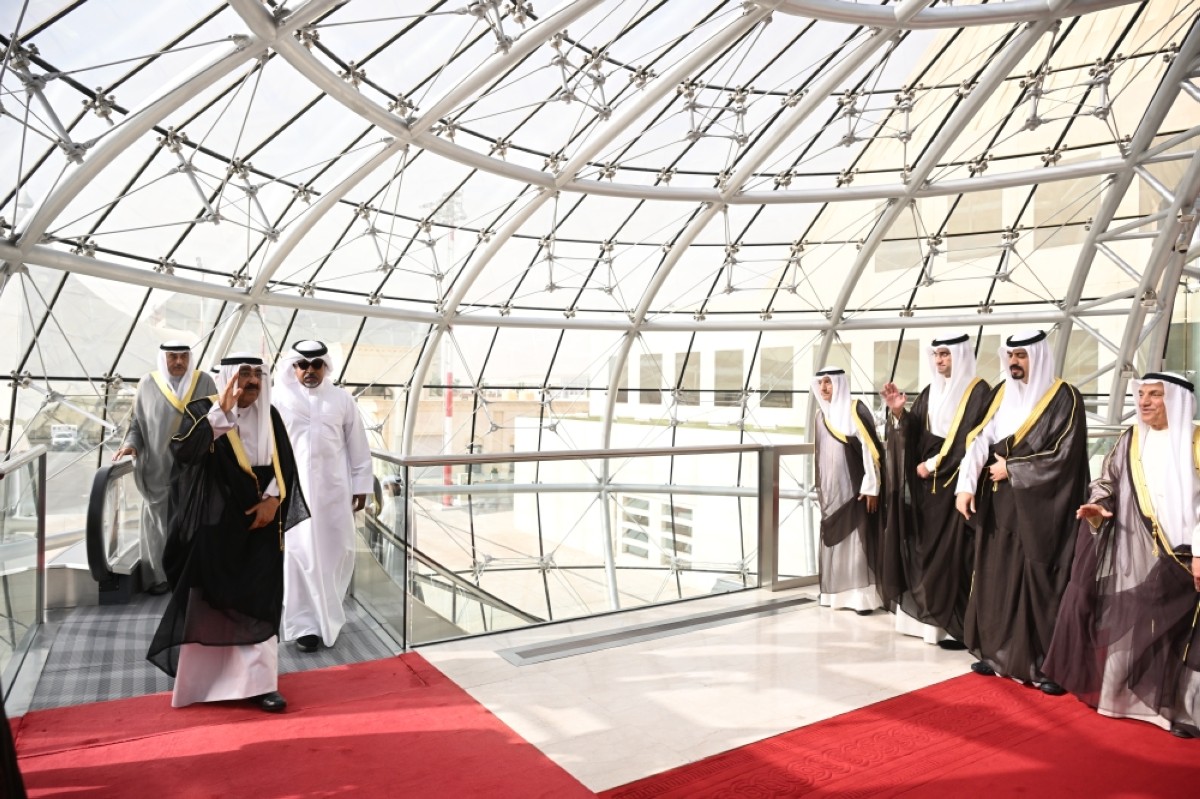

 Latest News21 hours ago
Latest News21 hours ago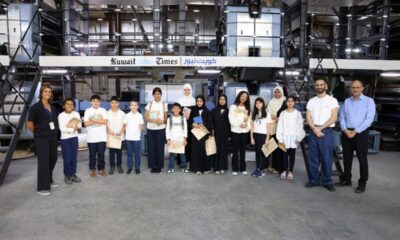
 Latest News23 hours ago
Latest News23 hours ago
 Politics7 hours ago
Politics7 hours ago
 Business14 hours ago
Business14 hours ago
 Latest News14 hours ago
Latest News14 hours ago
 Latest News12 hours ago
Latest News12 hours ago
 Politics4 hours ago
Politics4 hours ago
 Latest News3 hours ago
Latest News3 hours ago
